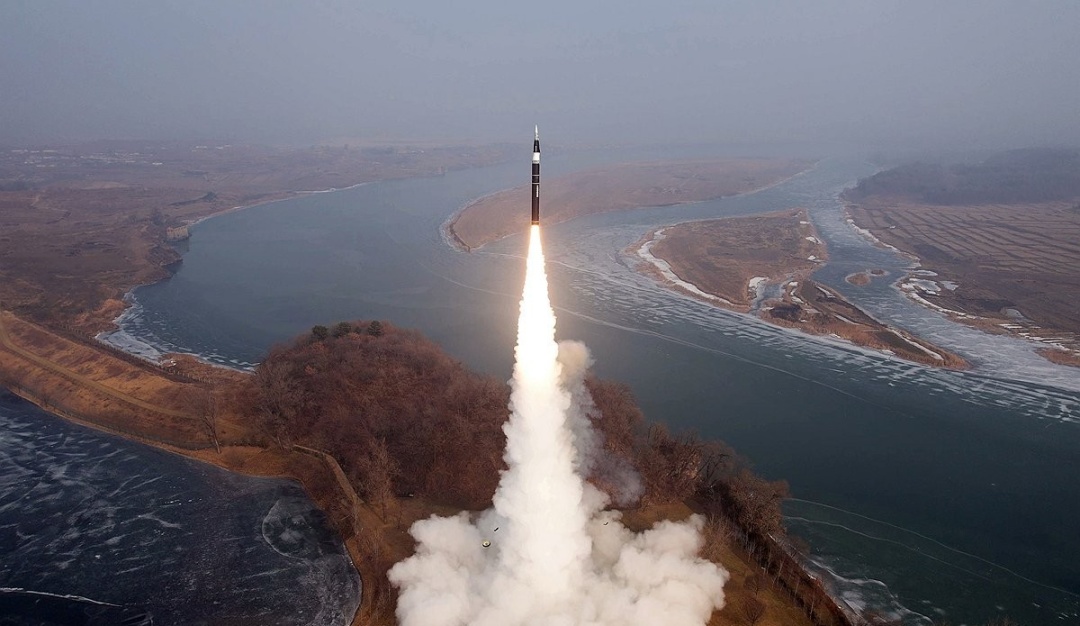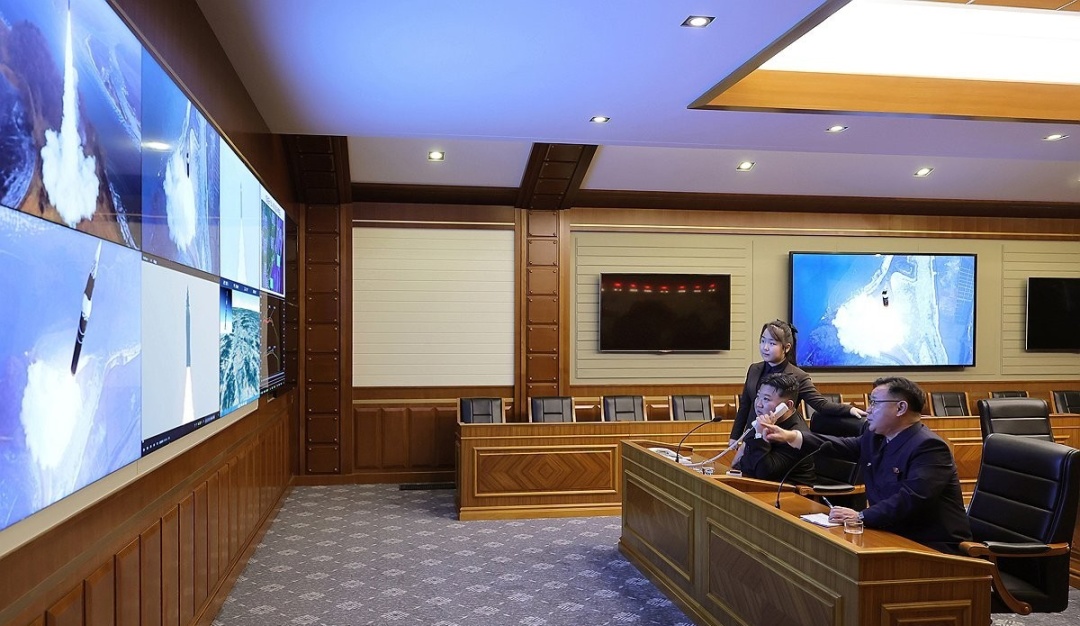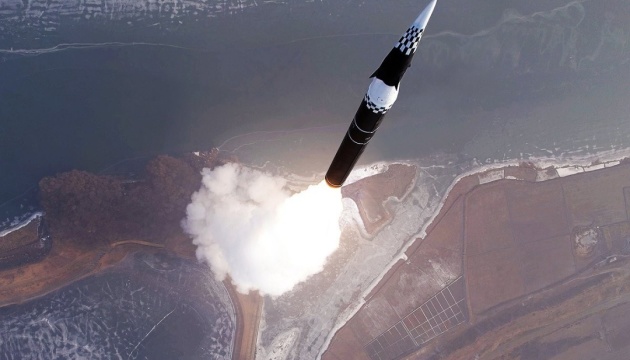North Korea confirmed on Tuesday it had successfully tested a new intermediate-range ballistic missile (IRBM) with a hypersonic warhead.
That’s according to Yonhap, Ukrinform reports.
North Korea the missile flew some 1,500 kilometers at 12 times the speed of sound the previous day during the testing overseen by leader Kim Jong-un via a monitoring system, according to the Korean Central News Agency (KCNA).

However, the South Korean military said that, together with the United States and Japan, they analyzed the flight range, finding that the alleged hypersonic missile, launched from the Pyongyang area, flew about 1,100 km before falling into the East Sea.
KCNA said the hypersonic glide vehicle atop the new ICBM reached its first peak at an altitude of 99.8km and the second at 42.5km during a 1,500km flight, as scheduled, before hitting a designated target point at sea.
However, South Korea’s military dismissed North Korea’s claim as a “deception”, saying there was no second peak.
North Korea also claims that a new carbon fiber composition was used in manufacturing the engine body of the hypersonic missile, and an unspecified “comprehensive and effective” method was introduced for the flight and guidance control system.

Experts say the North appears to have launched an upgraded version of the hypersonic missile it launched in April last year. Pyongyang claimed at the time that the missile, equipped with a hypersonic glider, flew 1,000km.
The South Korean military said the missile flew 600 km, calling the North’s claims partially “exaggerated”, although it noted that Pyongyang appeared to have made some technological progress in its hypersonic weapons program.
A hypersonic missile is typically difficult to intercept by existing air defense systems. It travels at speeds of at least Mach 5, five times the speed of sound, and is designed to maneuver on unpredictable flight paths and at low altitudes.
As Ukrinform reported earlier, North Korea on Monday likely fired a hypersonic missile toward the East Sea during a visit to Seoul by U.S. Secretary of State Antony Blinken, the South Korean military said.




